The French border villages that are bastions of National Front support
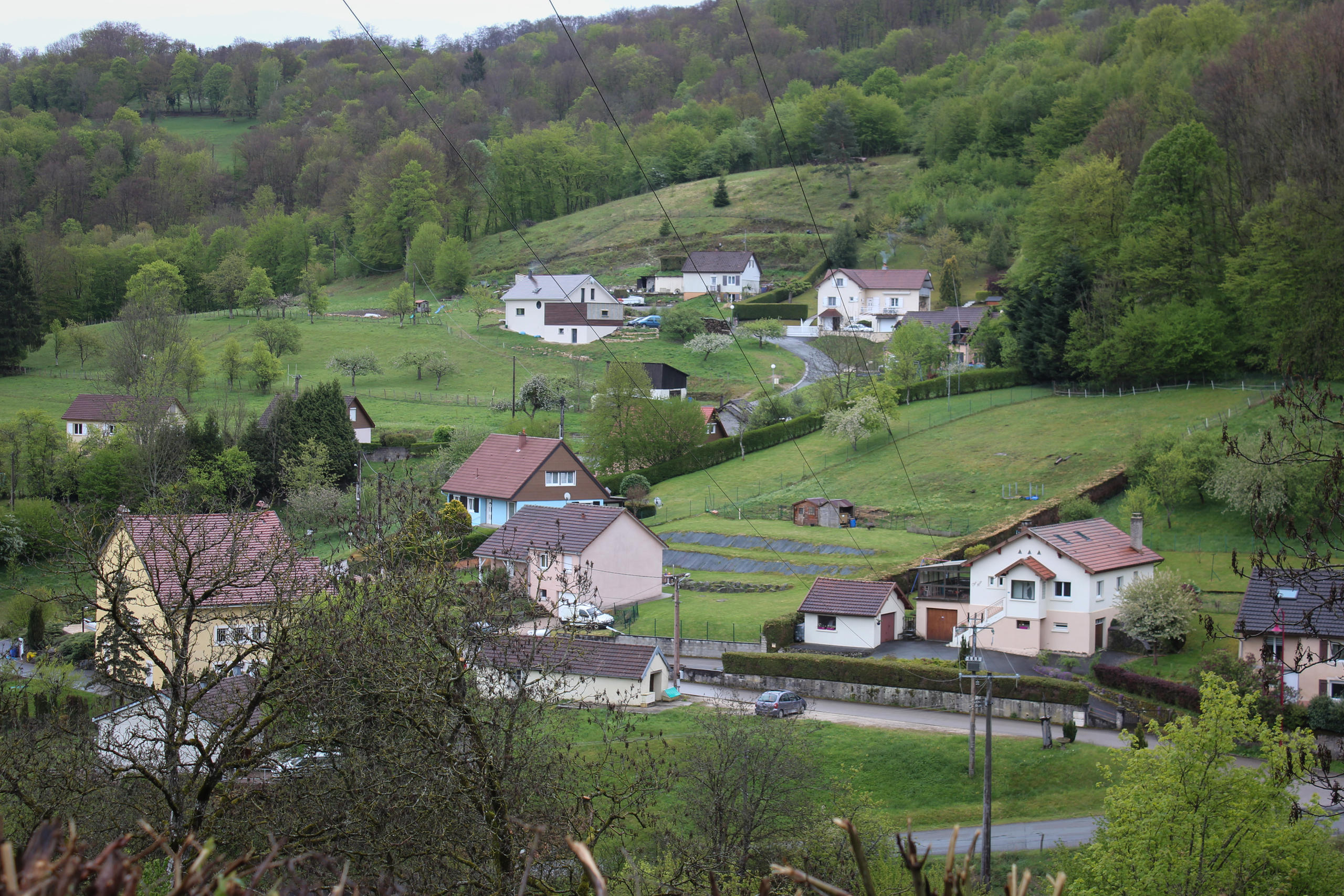
Why are a number of French villages bordering Switzerland proud supporters of France’s far-right leader Marine Le Pen in the presidential election?
“We cannot endure the current immigration levels while our young people are out of work. It has to change,” Pierre Kohler tells swissinfo.ch.
Kohler, a retiree, is a resident of the village of Dannemarie-lès-Glay, which belongs to one of the five of six French departments that border Switzerland and backed Le Pen in the first round of the French presidential election.
At the end of the chat earlier this week, the former Peugeot-Citroën car worker nonetheless admits that unemployment is not really an issue in his quiet little village that lies in a green valley bordering canton Jura in Switzerland.
“The people who don’t have jobs are lazy. Most employed people from the village work in Switzerland where they earn good salaries,” he added.
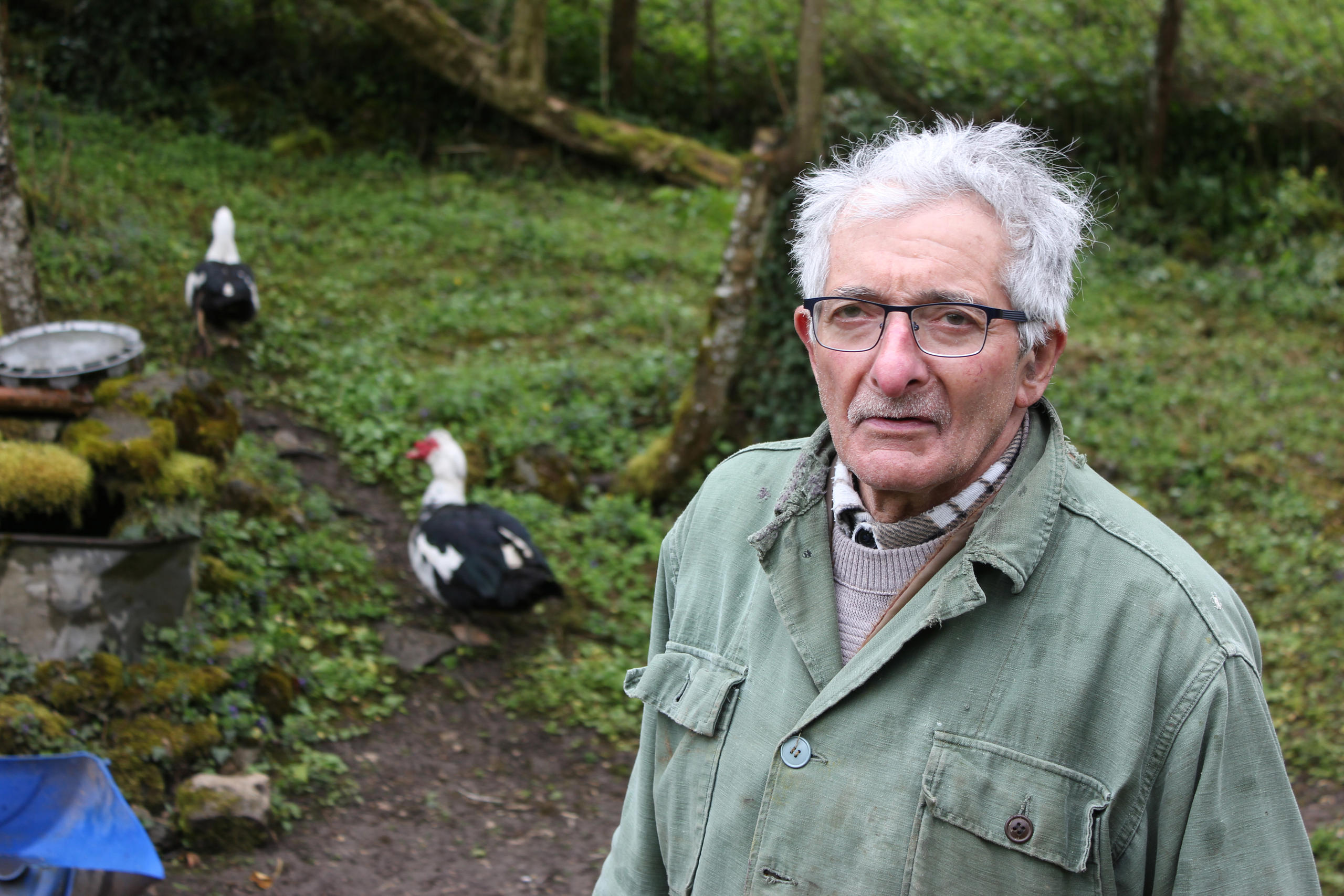
Kohler refused to say who he would vote for in the second round run-off this Sunday. In the first round, 62% of his French neighbours (92 people registered in the commune) voted for Le Pen – a record for the Doubs department in eastern France.
“Even the farmers have left”
Crime is pretty much non-existent in Dannemarie-lès-Glay, as is unemployment. Immigration also appears to be a distant national election slogan. There is only one foreigner in the village – Aldo C, an Italian who married a Frenchwoman and moved there 35 years ago.
“The locals have always voted for the National Front. In the run-off, Le Pen should win with over 80% of votes,” said Aldo C.
“But among the residents who work in Switzerland, some are unsure about voting for the candidate who wants to close the borders.”
Aldo C believes the strong support for the National Front can be explained by the commune’s relatively isolated geographical position. The village of Dannemarie-lès-Glay has no shops, schools or communal meeting place where neighbours can stop and chat.
“Even the farmers have left. Swiss farmers are obliged to come and work on our fields,” said Aldo C.

No crime
Grandfontaine is a small Swiss village in canton Jura just two kilometres from Dannemarie-lès-Glay as the crow flies.
The mayor, Marguerite Vuillaume, seems unable to explain the huge support for Le Pen among her French neighbours.
“Apart from a few burglaries, which are carried out by gangs from Eastern Europe, there is practically no crime at all in the French-Swiss region,” she declared.
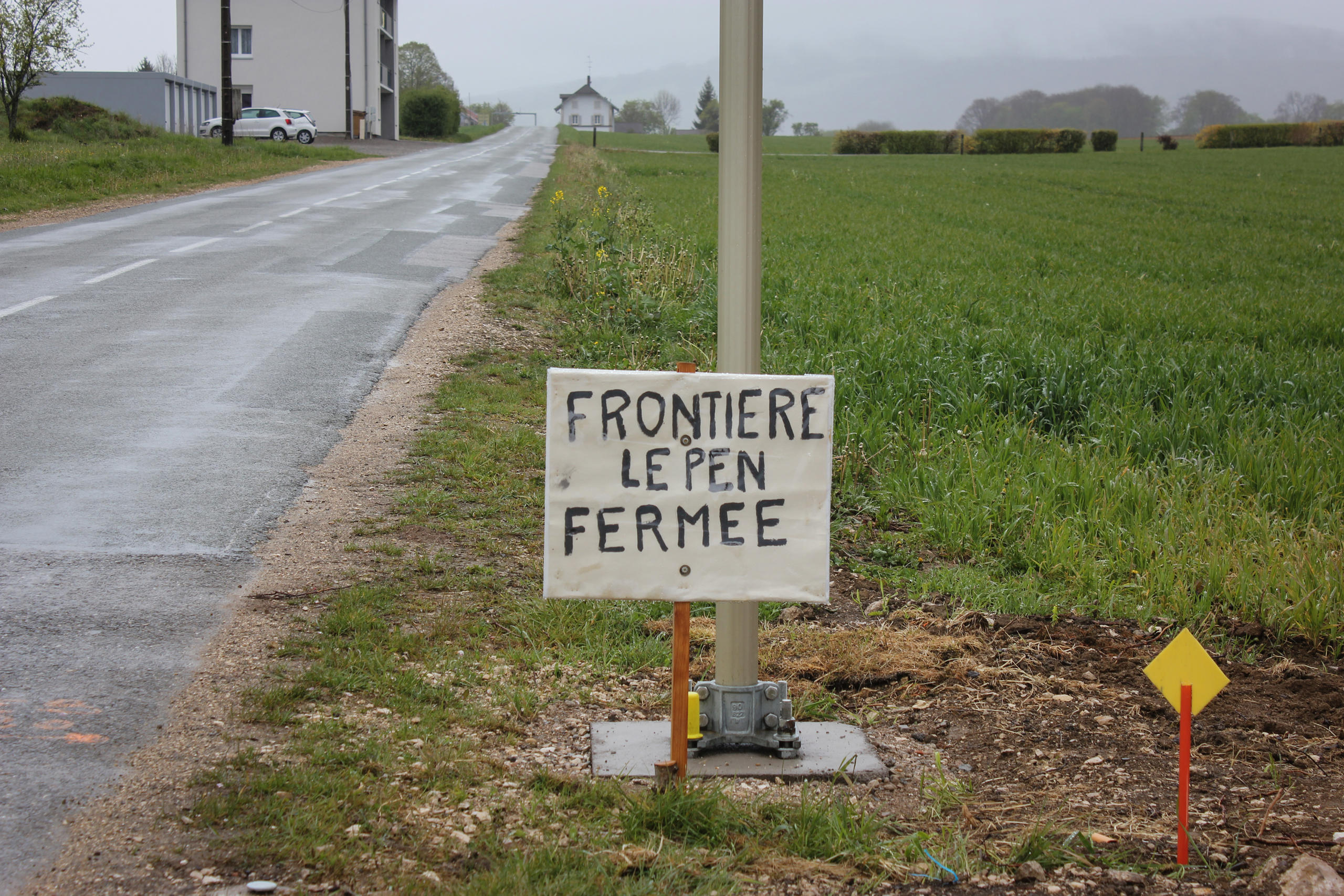
Relations between Swiss and French neighbours have always been peaceful, Vuillaume added.
“I have never noticed any tensions between people in my commune and cross-border workers from France,” said the centre-right Christian Democrat politician.
However, Dannemarie-lès-Glay is not a one-off. Out of the 30 French communes bordering canton Jura, 22 voted for Le Pen in the first round, while eight voted for conservative rival François Fillon. Across France, the National Front leader scored highest in rural areas and small towns.
Fear of decline
This was true for Indevillers, a small village close to the Doubs River, which runs along the French-Swiss border. There, Le Pen won 40% of first-round votes.
“I have difficulty understanding the real reasons behind this protest vote,” declared local mayor, Claude Schneider. “Life here is pleasant and peaceful. Admittedly, there are limited services but you only have to drive a few kilometres to find a huge range of cultural and sporting activities.”
The mayor believes locals, especially young people, have deep fears about the future.
“Many people worry about losing their social and professional status compared to their parents’ generation. There is also a fear that French culture is becoming less dominant,” he said.
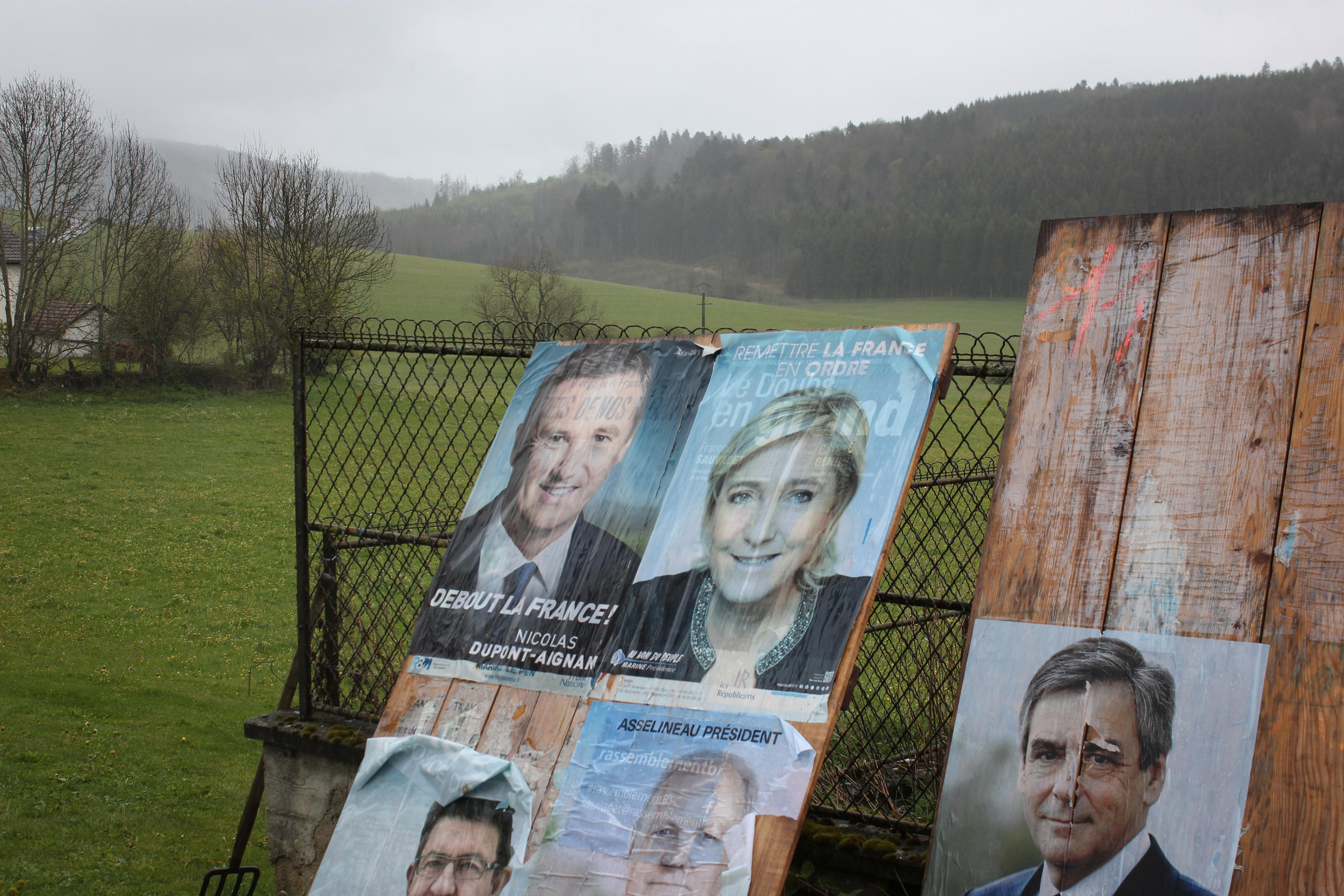
But the increasingly connected rural population is becoming much more demanding of their local authorities, according to the Indevillers mayor.
“Ten years ago people used to come and see me regarding land to build on. Five years ago, they wanted a school and now they demand that we install 4G mobile coverage. Obviously we cannot offer the same services as a big city, which leads to frustrations,” he noted.
Nostalgia
Jacques Lévy, a professor of geography and urbanism at Lausanne’s Federal Institute of Technology (EPFL), has carried out studies into voting trends among National Front supporters which mirror many of the Indevillers mayor’s observations.
“Marine Le Pen achieves her best scores in regions situated between cities and the countryside, where poverty levels are the lowest. There, fears about the future are not linked to a bad economic situation but rather to the difficulty people have as they think about having to open up and co-exist with all these things that are different,” said Lévy.
The EPFL professor rejects the idea that rural France has been abandoned, that public services, shops and medical facilities have been cut and that this could explain the protest votes.
“Such services exist where there are local residents. The ‘medical desert’ that the media often talks about is more a general sense of abandonment than anything actually observed,” he commented.
National Front supporters are a very heterogeneous group, who appear to come together around the nostalgic ‘it-was-better-in-the-past’ view of France, he added.
“This is the successful recipe of all European populist parties, including the conservative right Swiss People’s Party,” the EPFL professor commented.
You can contact the author on Twitter: @samueljabergExternal link
Translated from French by Simon Bradley

In compliance with the JTI standards
More: SWI swissinfo.ch certified by the Journalism Trust Initiative
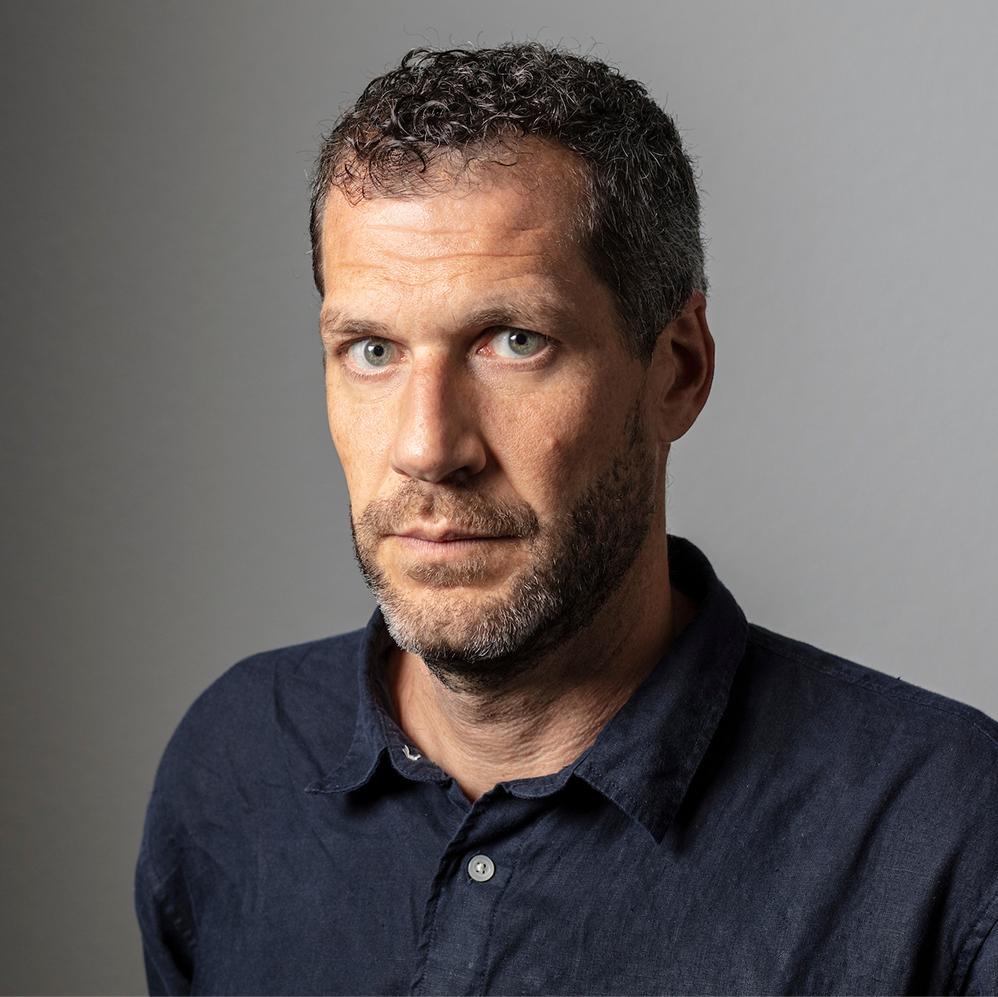
You can find an overview of ongoing debates with our journalists here. Please join us!
If you want to start a conversation about a topic raised in this article or want to report factual errors, email us at english@swissinfo.ch.